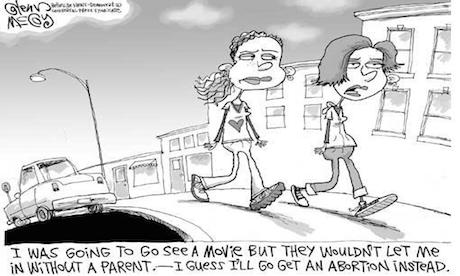Family Planning chief executive Jackie Edmond said the abortion law as it stands is outdated and needs fixing.
She said abortions were part of a broken system as they currently fell under justice rather than the Ministry of Health.
Edmonds said this when making a submission last Thursday to the Justice and Electoral select committee’s hearing of a petition by Hillary Kieft.
“It’s a health issue – it’s not an anything else issue,” Edmond said.
“We can talk about this as a very large huge event but over 90 per cent of women are happy with the decision they make with abortions.”
“Clearly it’s a big decision and I don’t want to understate it but for many women it’s a positive experience in what was a difficult situation.”
Kieft’s petition to Parliament calls for abortion law changes that will make it mandatory for parents of a child under the age of 16 to be told before their daughter has an abortion.
The two proposed changes sought for legislation to ensure parents were notified before daughters are referred for an abortion, and to ensure there is “a fully informed consent” from those undergoing the procedure.
Family Planning however is strongly opposed to making parent notification for under-16s mandatory or compulsory post-abortion counselling as mooted by Maori Party co-leader Marama Fox.
Family Planning National Medical Adviser Christine Roke told MPs that parental involvement in abortions was a good thing “but pushing it on young people isn’t”.
“It’s breaching confidentiality and privacy for a questionable benefit”.
She said there was no proof that abortions caused mental health issues in women so that was not a reason for parents to need to be told.
Kieft’s own daughter, who was 15 at the time, was taken for an abortion in Hawera in 2010.
It was arranged by her school and it wasn’t until a year later when she attempted suicide that Kieft found out what her daughter had been through.
In 2008 a long-term Christchurch study of more than 500 women found a link between having an abortion and an increase of nearly a third in the risk of disorders such as depression and anxiety.
Reporting their findings in the British Journal of Psychiatry, the Otago University researchers said that abortions account for 1.5 to 5.5 per cent of the overall rate of mental disorders.
The researchers said their study backed up others overseas which concluded that having an abortion may be linked to an increased risk of mental health problems.
When the study was published a pro-abortion group said that international evidence was inconclusive.
The then president of the Abortion Law Reform Association, Margaret Sparrow said it was likely that the effect of abortion on mental health was small or negligible and closely linked to factors that led to unplanned pregnancies.
She cited the findings of an American Psychological Association taskforce on mental health and abortion.
Source
